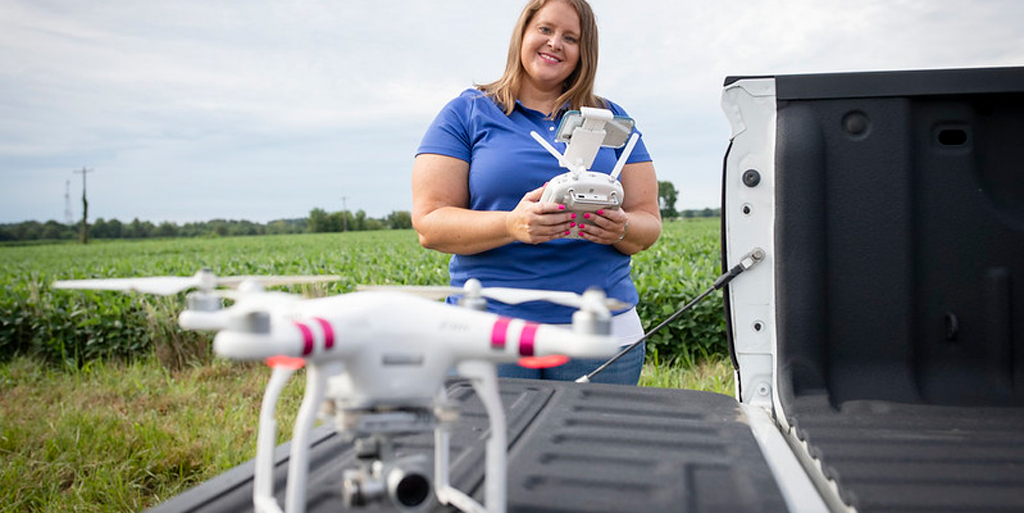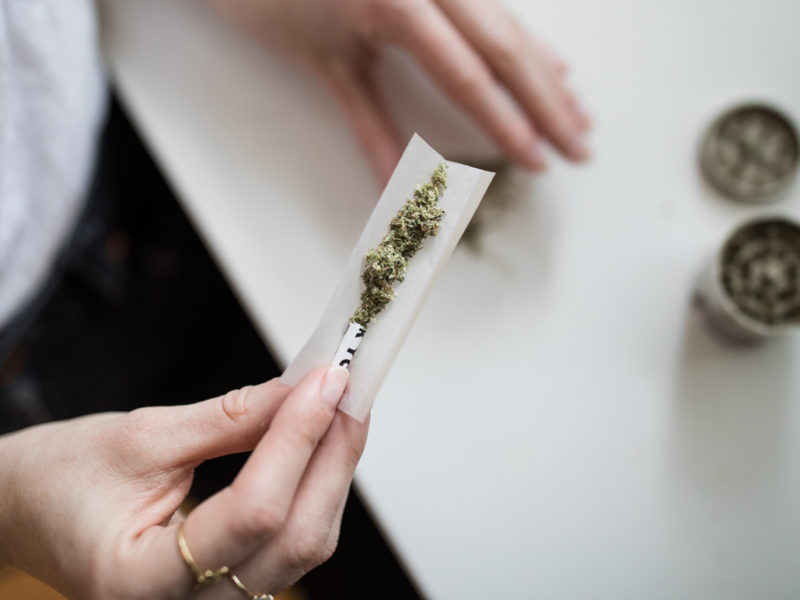
The Future is Soybean: How the Illinois Soybean Association Helps Farmers Grow the Food of Tomorrow
While it may be hard to see in the Windy City, Illinois is the largest producer of soybeans in the United States. In fact, if Illinois were a country, it would be the fourth largest in global soybean production.
Representing this behemoth network of producers (some 43,000 farmers who cultivate their crop on nearly 30 percent of Illinois’s land) is the Illinois Soybean Association (ISA), an organization that connects producers to innovative solutions in order to enhance the potential of this vital industry.
Keeping Illinois soybean farmers at the top of the national game requires ISA to bridge the gap between producers’ needs and innovations in the agricultural technology market, or agtech, as those in the know prefer to say. We’re talking autonomous farming equipment, GPS guidance systems, sensors that can detect soil conditions, and biotechnology that can make seeds better equipped to deal with drought and flood-stressed conditions. But, the novel thinking behind Illinois’s dominance in the industry extends beyond enhancements to production practices and tools on Illinois’s farms.
Biodiesel Fuels Economy
Creative thinking on the market and distribution side of the equation expands the relevance of this top Illinois crop. For one thing, soybean oil is one of the most widely used biofuels in the world. Indeed, U.S. consumers used nearly 2 billion gallons of biodiesel in 2017, and the biodiesel industry contributed $11.42 billion in U.S. economic impact in 2016. By harnessing the power of the sun, biodiesel is able to contribute to a sustainable environment, generating 5.54 units of renewable energy for every unit of fossil energy used to produce it. No other fuel available in the U.S. comes close to such a high energy balance.
Additionally, Illinois soybean producers are innovative in the way they get their product to market. Illinois is responsible for 65 percent of soybean exports via shipping containers. This decreases turnaround time from months to weeks, improves shipment efficiency, and enables buyers to better control their inventories or purchase specialty soybeans. Containers open the door to new markets across the world.
Illinois Delivers to a Global Market
This level of sustainability and forward-thinking solutions integration is a direct product of ISA’s work. For farmers, sustainability is not only good for their land, but good for their long-term business prospects as well. A growing global population means we need to produce more food on the same or less land in the future. With that, a rising middle class around the world means a greater demand for protein. Soybeans are a key part of the equation, including feed for animals like poultry and pigs.
Demand for soybeans is growing across the world, increasing 241 percent since 1990. Illinois is uniquely situated within the U.S. to more efficiently export crops to the rest of the world because of our transportation channels (river, rail, and roads). More than 60 percent of Illinois soybeans are exported, supplying a steady stream of high protein crops to the world.
Managing a global agricultural footprint of this magnitude relies on a steady stream of collaborative thinking and innovative solutions. By fulfilling this vital role, ISA liberates Illinois soybean producers to focus on what they do best: cultivating the crop of the future from Illinois soil.
Want to learn more about the Illinois soybean industry and how the work of the Illinois Soybean Association supports its longevity? Visit Ilsoy.org and follow the Illinois Soybean Association on Facebook, Instagram, Twitter, and LinkedIn.




